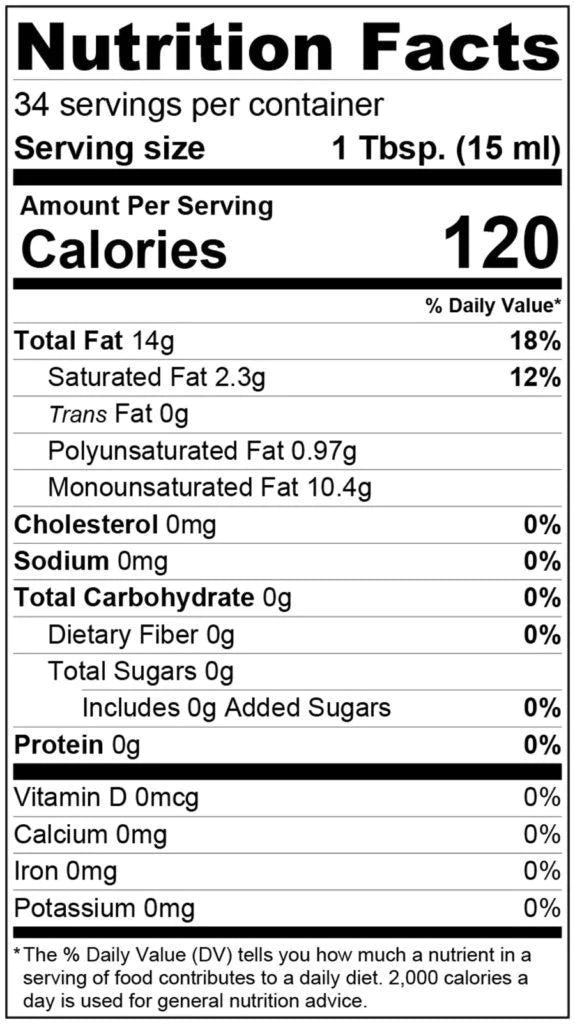
Calories & Fat Profile
One tablespoon of olive oil has about 120 calories, coming almost entirely from fat. Roughly 70–75% of these fats are monounsaturated (oleic acid), linked with heart-friendly dietary patterns. EVOO also contains small amounts of polyunsaturated fats and minimal saturated fat—making it a healthier option than butter or margarine. See also our Olive Oil vs Butter guide.





